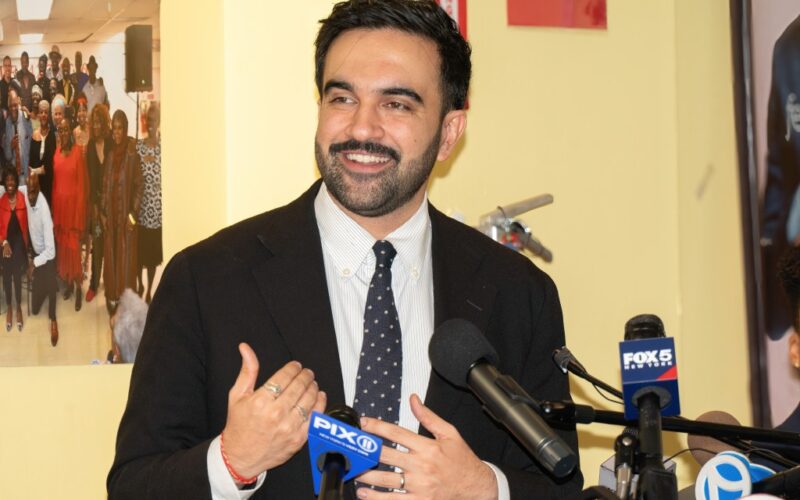This week there will understandably be much parsing and pontificating about the final poll numbers of the mayor’s race: How did Zohran Mamdani win? What does it mean about the politics of the city?
But there are much more important numbers that Mamdani and New Yorkers should be turning their attention to. These numbers will determine the trajectory of Gotham for years to come. Six numbers to be exact.
3%. “Headline inflation” for the city is higher than the national average of urban areas and has been outpacing most of the rest of the country for years. This has led to a mass exodus of lower- and middle-income New Yorkers. It also affects our ability to attract young people to refresh our city’s economic and cultural scene — as well as businesses who also wish to avoid higher costs.
Mayor Adams and the City Council have significantly increased subsidies and programs across the board to try to stave off a deepening of the affordability crisis. But much more will need to be done, particularly on housing and child care. Funding it will be the hardest problem to solve for the new administration.
50,000. Speaking of the cost of living, building much more housing is essential to success. The city must build or preserve 50,000 units each year for a decade to gain ground in the battle for affordability.
Although massive investments were also made here recently on new housing construction and the subsidy to go with it, as well as historic reforms like “City of Yes” and the recently passed ballot initiatives (all of which I was proud to work on), it is not nearly enough. A mix of even more funding on both the capital and expense sides — and big checks from Albany — will be needed to take advantage of the new tools the city has to create new homes.
$13.9 billion. The city’s multi-year deficit number is massive and likely to grow. There is no more hiding spending in “out years.” The bill will come due for the new mayor, whether or not he resolves conflicts with Washington and Albany over their contributions. That means higher taxes, less spending in some areas, or both.
100,000. That’s approximately the number of major felony offenses a year that New Yorkers will tolerate before they think their city is unsafe, according to historic polling. We last reached this mark in 2020 following several decades of grueling work to drive crime down.
This year will end with approximately 120,000 felonies from the seven major crime categories, which is a meaningful reversal from the spiking rate Eric Adams inherited. Adams and NYPD Commissioner Jessica Tisch now have murders and shootings near record lows as well. That is a big reason why most surveys now have affordability as the No, 1 issue, not public safety. But that trend must continue or the fear of crime will overwhelm public life once again.
1 million. The number of students in public schools has ticked back up to just above 900,000 after a huge decrease during COVID, but is off its high of more than 1 million. That is encouraging but it also means expectations for improvement will be higher and the modest recent improvements to test scores must continue or accelerate.
Yet few New Yorkers are likely aware of Mamdani’s intention to fundamentally change the leadership structure of schools by moving away from the mayoral control model. That change will have potentially huge consequences.
50%. The most important number: Mamdani’s approval rating. Whether or not it is above water by the time the rubber meets the road on his agenda could determine his ability to deliver. Recent surveys have had him just over or just under 50% “favorability.” For comparison, Adams had a low-60s approval rating when he took office — and he still faced tremendous political headwinds in his first six months.
The votes on Election Day were less about the issues themselves and more about who voters trusted to tackle them. But New Yorkers are a famously impatient bunch. Any new mayor is expected to deliver immediately. This one has inherited some numbers moving in the right direction and some adding up to serious trouble.
The incoming mayor announced his transition committee the day after the election. How they and our new city leadership navigate these issues separately and together at this pivotal moment will determine our collective future for years to come.
Thies is a Democratic consultant and co-founder of Pythia Public Affairs.








